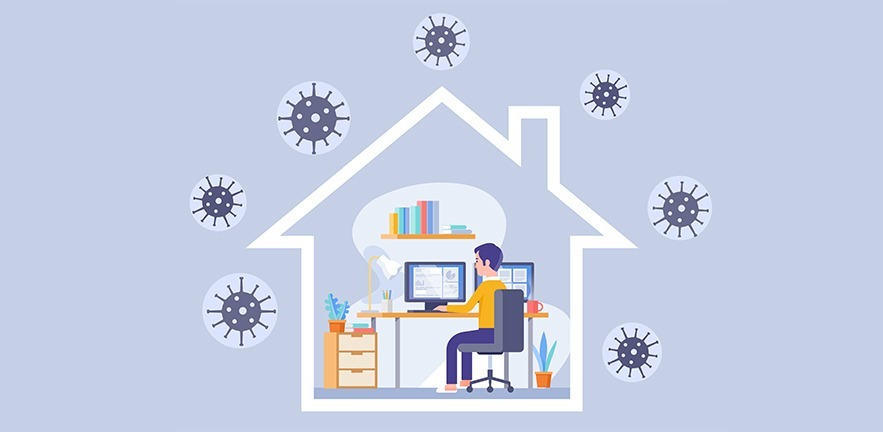Working from home can empower new thinking, writes Dr Kishore Sengupta, Reader in Operations Management at Cambridge Judge Business School.


The involuntary migration of work from offices to homes, difficult as it is for many organisations, offers a rare opportunity for companies to experiment with bottom-up transformation through employees suddenly empowered to think and perform in new ways.
Organisations naturally run on routines, with employees performing a pre-defined task, but the sudden lack of usual office structures means that workers are gaining autonomy over certain types of decision-making that they lack in normal times. This can create downsides if employees make the wrong call, but also offers a route to personal and organisational innovation.
What’s clear is that the current situation, for many firms, doesn’t lend itself well to the sort of deeply rooted hierarchies and narrowly defined roles that reflect their usual corporate cultures. There has been a disconnect between settled patterns and the current workplace reality.
This ties in well with research I have conducted with my colleague Dr Philip Stiles, University Senior Lecturer in Corporate Governance at Cambridge Judge Business School, on how organisations handle “discontinuity” – the sort of transformation forced by circumstances that may include technological change but also the sort of sudden cataclysm that COVID-19 (coronavirus) entails.
In such situations, employees often become problem-solvers rather than task-performers, and the problems posed require a new fluidity in ways of working, thinking and collaborating. This can be liberating for employees, sparking long-stifled creativity, but it also requires a new flexibility by managers.
We examined a telecoms company adapting to the next generation of digital technology, and identified two key management techniques that are important in such a major transformation:
- Allow workers to create self-organising teams
By encouraging employees to innovate in order to help solve transformational issues, companies can encourage people to collaborate across functions to tackle the issue at hand. This can open their eyes to other teams’ ways of thinking and working, thus expanding their own knowledge and problem-solving abilities for the future.
- Shift from supervising employees to serving as their ambassadors
By focusing less on day-to-day tasks and more on longer-term goals, managers can lobby for additional resources for promising projects or argue for greater deadline leeway to encourage more creative and autonomous approaches.
Working from home is, of course, not novel or new: many people have been doing this for decades even before the latest teleconferencing tools were refined. But what is new is the current scale of such home working, which provides opportunities for companies to conduct many natural experiments on autonomous work in a short period of time.
To maximise this opportunity, companies need to do more than merely ride out the current situation, but instead to instill a structure of experimentation and autonomy that survives the current crisis. This includes a dispassionate, data-driven analysis of what worked and what didn’t during this coronavirus-driven period of experimentation, in order to decide which elements of autonomy to retain and which to discard when things return to “normal”.
Such a “bottom-up” approach to makeover may be less dramatic, and slower, than reorganisation imposed from the CEO’s office. But the risks are far lower when gradual change emerges from below, as such an approach provides a platform for improvement through learning that doesn’t destabilise an organisation.
There are major challenges to any programme of change, forced or not, and many managers may rightly be concerned that greater autonomy of staff will make it more difficult to mentor staff and assess performance through conventional yardsticks. Experimentation simply may not work for many companies owing to their business model, customer base and history.
Yet at a time when everyone is forced into some sort of experimentation to get through the current pandemic, there are certain long-term organisational opportunities that many firms would be well-advised to consider.

